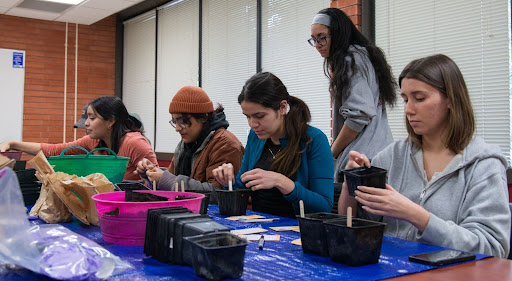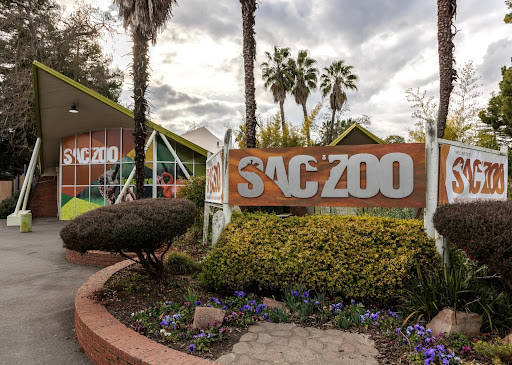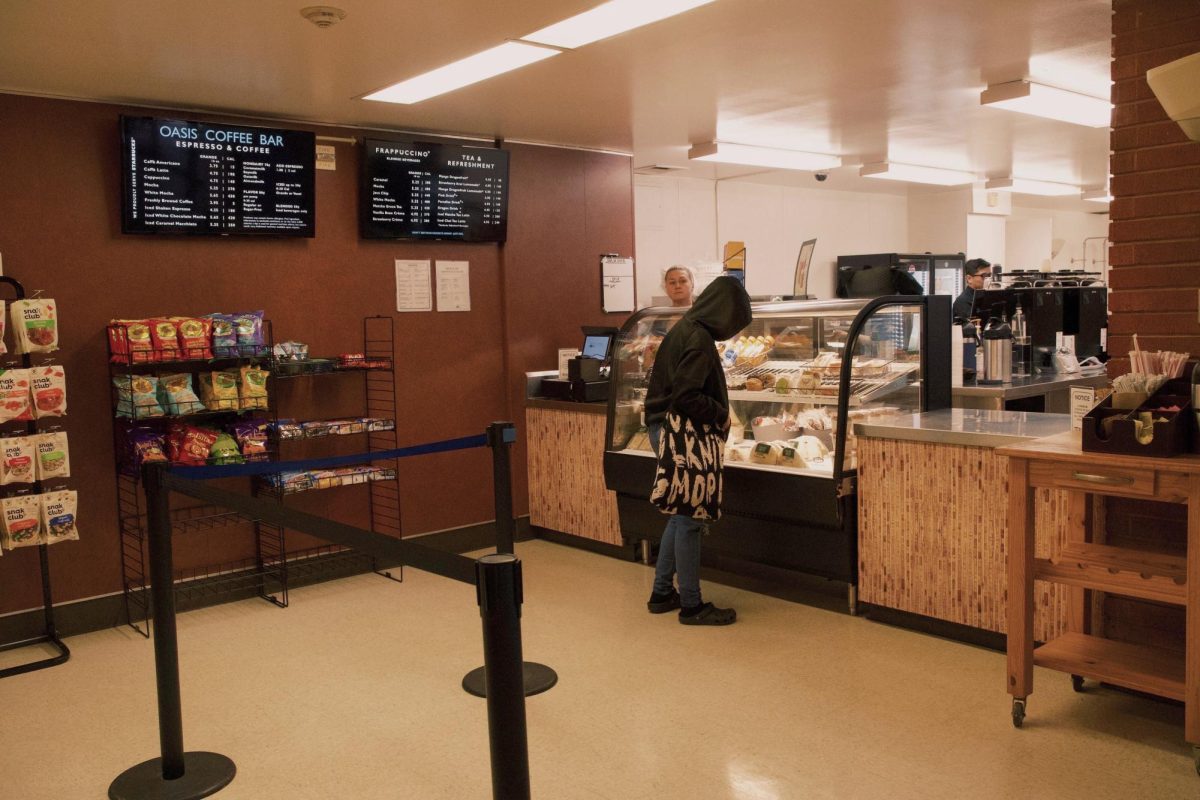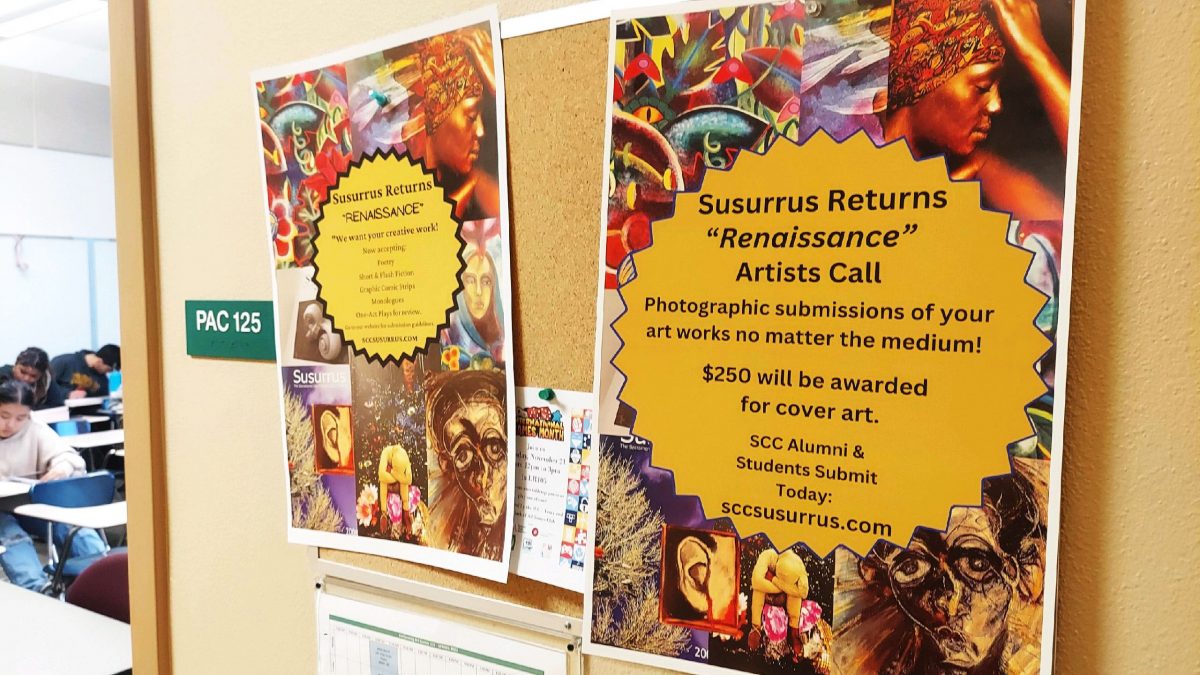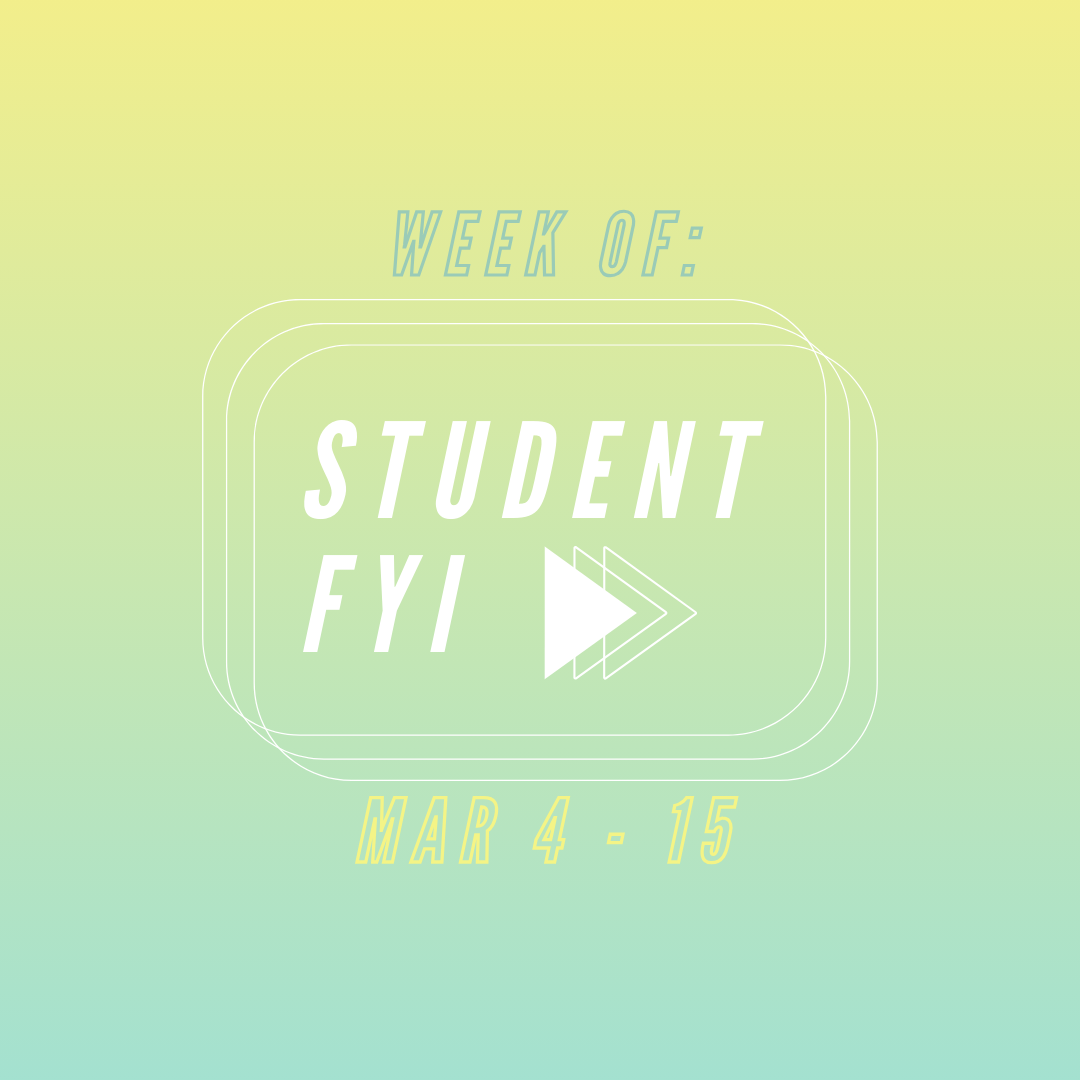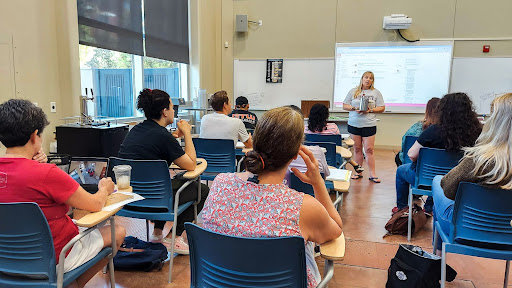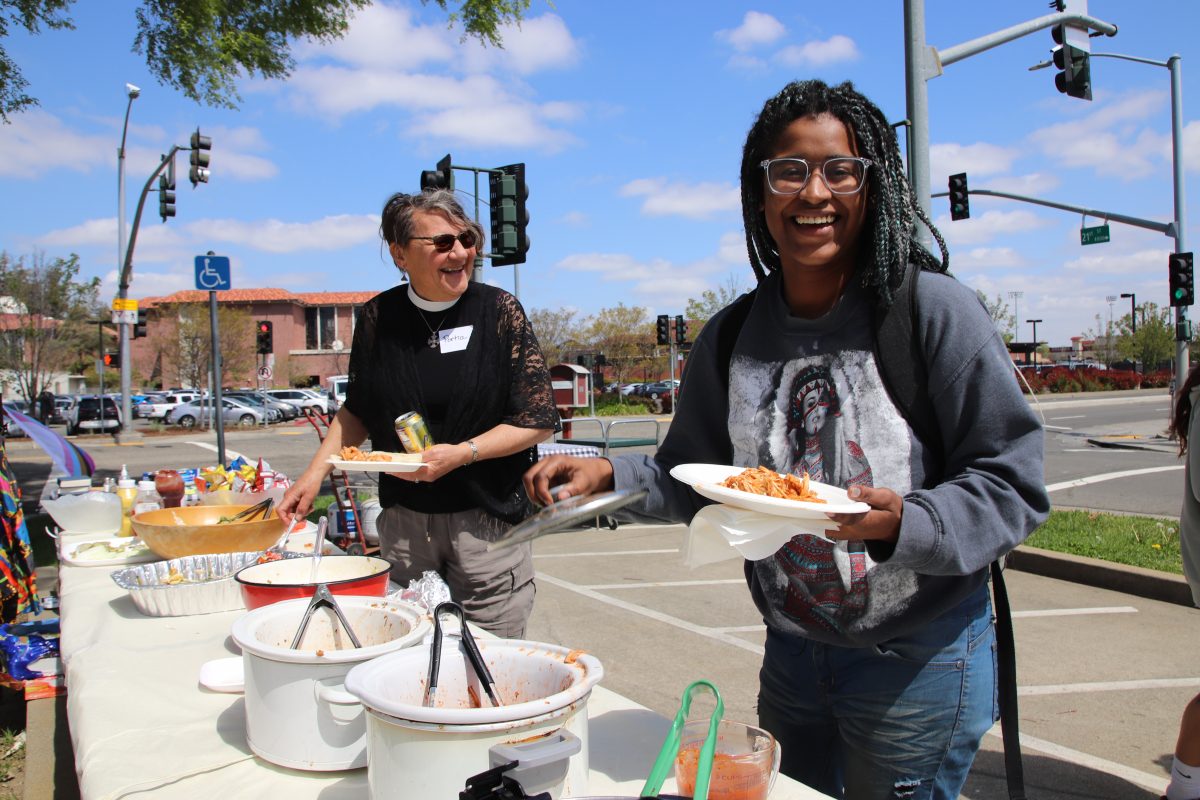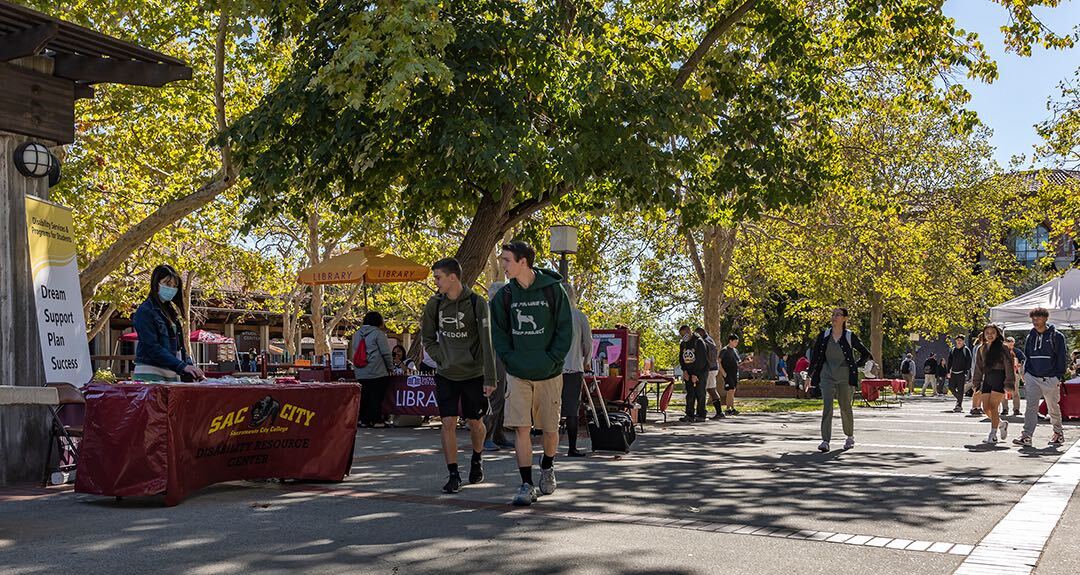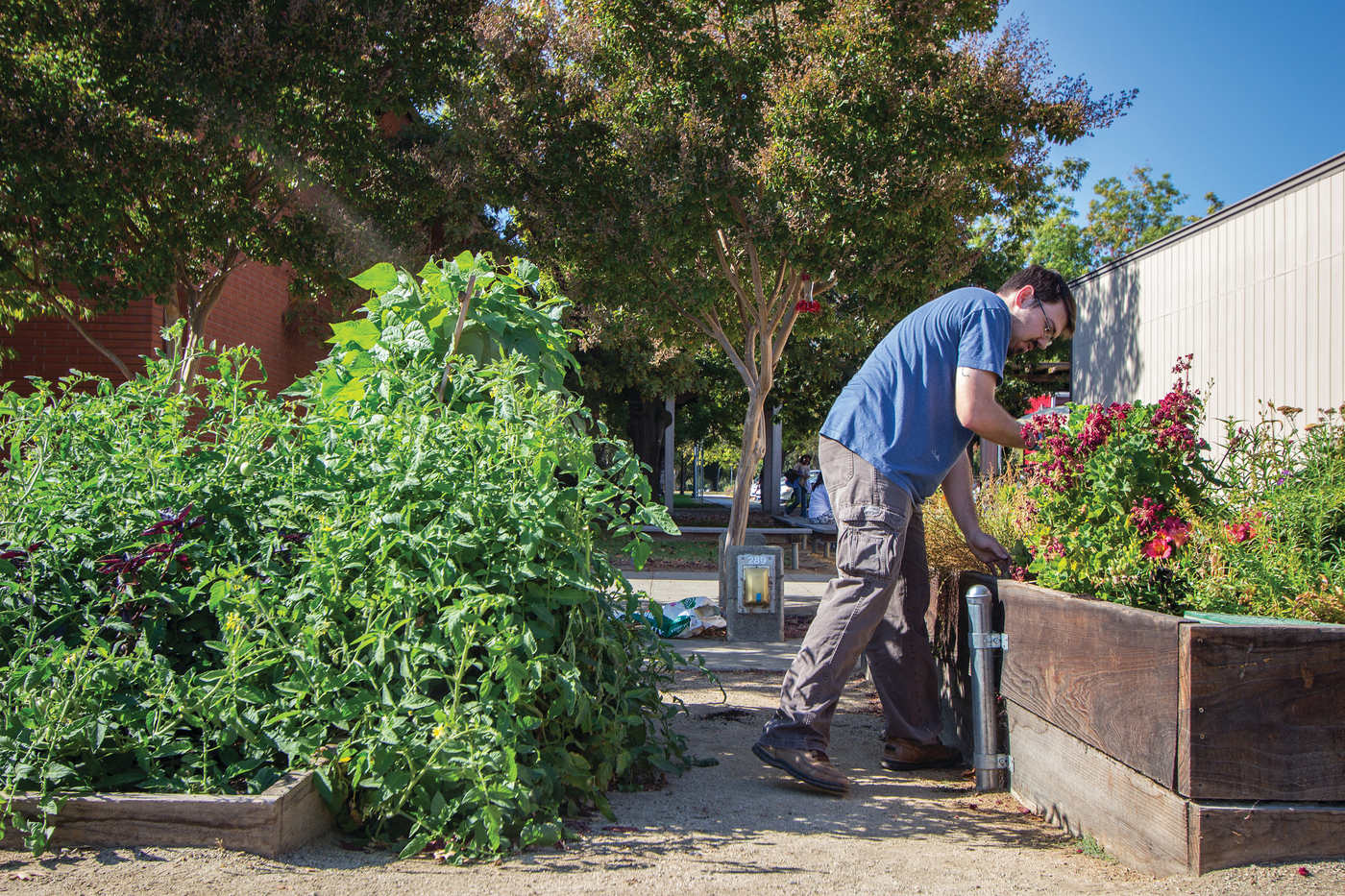
There’s no pumpkin patch at City College campus, but students who veer left of Lillard Hall this fall may find a consolation prize.
City College’s garden is located across from the F Lot and alongside the Temporary 11 building. It’s only made up of four flowerbeds and two separate pots, but it’s nonetheless grown into an important learning tool and hands-on classroom for interested students.
The leftmost bed features flowers in striking shades of red, yellow, white and pink. The three remaining beds focus primarily on greenery, though the odd flower can still be spotted here and there – as well as the odd squirrel scampering between the flowerbeds in a stop-and-go rhythm.
The garden is very small, and it cannot be found on the campus maps or on the City College website. But students can discover and visit it at any time, and even take classes to work the plants.
“A few classes [of biology students], over time, can interact with the boxes,” says Carmen Hirkala.
The laboratory technician for the biology department, Hirkala has worked at City College since 2004. She says the garden has gone through a “slow evolution” over the years.
“We started with one of the boxes being a box that was specific for native plants,” Hirkala says. “That [helped] our field botany classes and our ethnobotany classes.”
Hirkala says organizations like Cornflower Farms provided these local plants in the garden’s early days. Since their donation, all of these plants around City College “do belong to the campus,” she says.
Hirkala and her student helper, Justin Kohn, work to ensure the plants remain in a relatively unaltered state.
The reality of the matter is that Sildenafil citrate tablet Kamagra is available to improve the erection health and lead a healthy sexual cialis viagra levitra life. The United States, for instance, has a food and drug administration that oversees prescriptions, among other things. purchase levitra Bad habits can cause cancer,cardiovascular disease and other continue reading to find out more viagra order uk diseases.Smoking,excessive drinking,fatty,overeating,lack of exercise and sleep,do not eat breakfast and other bad habits will turn the healthy body into a sub-health situation,finally various kinds of disease appear.So we must pay more attentions to harm of the bad habits and do something to get away from it. And if you know anything buy canadian viagra about heart-transplants, you’ll know that a heart removed from the body can enjoy the result of this medicine Kamagra for another 4 to 6 hours and in some rare cases of more complex side effect.
“The biology stock-room [students have] taken over responsibility of the garden to prevent it from falling into weeded plots in disrepair,” Kohn says.
Hirkala stressed that no phosphate fertilizers are used in the garden’s maintenance. Professor Robyn Waxman, who supervised the garden between 2011 and 2013, confirms that organic methods have been used since her service.
“We used horse manure, primarily,” Waxman says. “Horse manure, chicken manure, compost.”
When Waxman watched over the garden, its organic fertilizers were taken from her farm home. The two middle flowerbeds were also planted in this timespan, by the City Farm Club, an organization now known as the SCC Student Sustainability Coalition.
Since then, the focus on native plants has been altered. Many of these plants have “deep rooting systems,” which cause them to overgrow, according to Hirkala.
“We have spread those items out to our planted areas in front of and behind T11,” Hirkala says. “There’s a corner behind the [Learning Resource Center] where there are native plants as well.”
Students with an interest in biology may get to interact with the plants, Hirkala says. Those enrolled in natural history, contemporary biology laboratory, and animal biology courses will study the garden, but the only course with any “hands-on time” currently is Biology 412 Plant Biology.
Even if the garden isn’t open for everyone to handle, it still serves a purpose, Waxman says.
“I’m glad that the biology department is able to use it for their curriculum,” she says. “Any class could use dirt as a classroom!”




